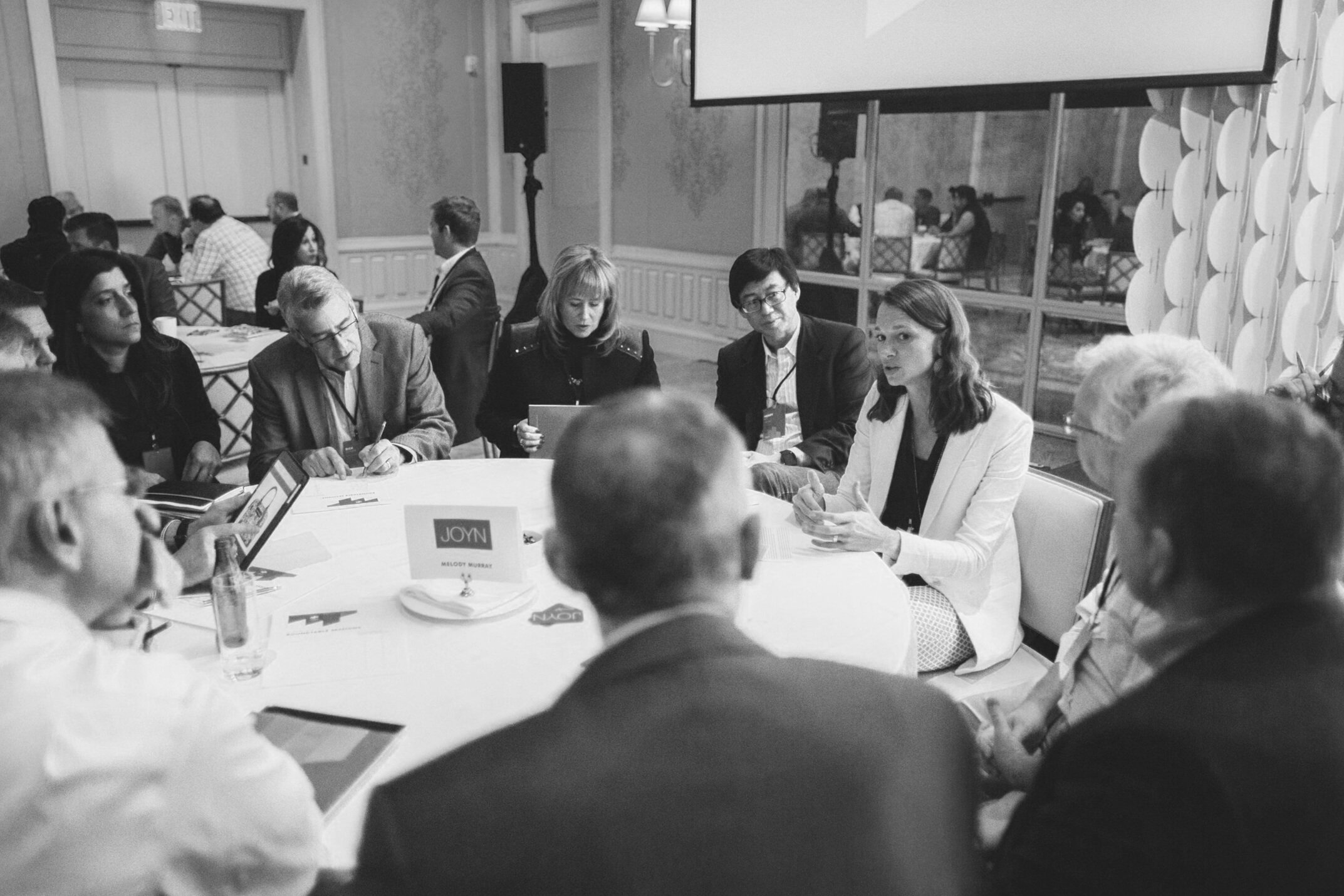
Praxis Accelerator
Nurturing “Redemptive” Entrepreneurs
Overview —
CATEGORY
Capacity Builder
TYPE
Emerging Pioneer
EST.
2011
LOCATION
New York, NY
Lessons for the Field —
ONE
Biblical faith offers insights for diagnosing brokenness in particular industry sectors and cultivating the imagination for potential solutions.
TWO
Fostering cultural renewal requires entrepreneurs to go beyond the ethical (“fair play”) to the redemptive (“creative restoration through sacrifice”).
THREE
Capacity builders need to help Christian entrepreneurs with personal spiritual formation, so that promising strategies and operations don’t fall short of desired impact due to lack of redemptive leadership.
Case Study —
Praxis Accelerator
According to Entrepreneur magazine, the number of business accelerators in the United States has increased tenfold since 2008. The Praxis Accelerator distinguishes itself from some 200 others by providing entrepreneurs with a practical, biblically informed framework that enables them to be agents of cultural renewal.
Praxis’ founders, Dave Blanchard and Josh Kwan, teamed up with partners and colleagues to call that framework “redemptive entrepreneurship.” Praxis’ leaders coined the term after both theological reflection and their observations of multiple Christian founders who “were embodying creative restoration through sacrifice,” says Rob Albright, director of programs.
The redemptive entrepreneurship framework focuses attention on three dimensions of work: strategy, operations, and leadership. Theoretically, in each, an entrepreneur could pursue an exploitive, ethical, or redemptive way of working.
The exploitive way of working involves seeking gain at others’ expense. The ethical focuses on doing no harm, playing by the rules, adding value—pursuing “win-win” solutions whenever possible.
“The redemptive way,” Albright explains, “is fundamentally other-centered, seeking others’ good even to our own disadvantage through an ‘I sacrifice, we win’ approach.
“This pattern imitates Jesus’ work in saving the world and it becomes the pattern for our daily work as we seek to serve the world.”
Going beyond the ethical is necessary if Christian entrepreneurs want to change broken systems, argues Andy Crouch, Praxis Partner for Theology and Culture. “We are not only in the world to maintain ethical systems,” he says, “but to repair systems that have become corrupt, or at least places where we need to ‘beware.’”
Just 24 ventures are invited into the Praxis Accelerator annually: 12 nonprofits and 12 for-profits. As they vet potential participants, Albright says, they’re “looking for founders who are designing an innovative solution to something broken in their sector and whose ventures have potential to scale either in size or in the replication of their core idea.”
Praxis leaders introduce the redemptive framework early on. Praxis also recruits mentors with specialized venture-building expertise to coach the Fellows over the nine-month program. “We ask our mentors to read about and reflect on the redemptive frame,” Albright says, “and then apply it to the topic they’re teaching or coaching on.”
He can tell when Fellows have caught the vision: In their pitches at the end of the program, they articulate how the redemptive frame has shaped their internal operations and how their venture will operate in its particular sector.
“Sometimes, the framework hasn’t necessarily changed what these entrepreneurs are doing,” Albright adds, “but it has provided language and clarity to why and how they take a redemptive approach in their particular industries/sectors.”

“
The redemptive way is fundamentally other-centered, seeking others’ good even to our own disadvantage through an ‘I sacrifice, we win’ approach.
Rob Albright
Director of Programs | Praxis Accelerator
Redemptive Entrepreneurship in Action
Mark Sears, founder of Cloud Factory, joined the business track in the 2014 accelerator. The redemptive framework helped shaped his company’s strategy of “impact sourcing.”
Sears explains that this is “a way to take digital work that is being offshored and direct it toward workers and areas that would not typically access it.”
His business now employs over 5,000 people worldwide. He not only wants to create jobs, however, but also to cultivate a redemptive culture. “At the core of [our] business,” Sears says, “is a desire to bless people with meaningful work where they can earn, learn, and serve their way to becoming leaders worth following.”
Attorney Drew Willey of the Houston-based organization Restoring Justice is participating in the nonprofit track of the 2022 accelerator. His organization is trying to bring redemptive innovation to the criminal justice system.
“They’re trying to address how people get represented in the system,” Albright describes. “They’re creating a more dignifying, rehabilitative approach, one which lowers costs and speeds up the timeline by which people get representation.
“We think their solution is really promising. Even if their venture doesn’t scale to other locations in the near future, the lessons learned from Restoring Justice can certainly be applied in other locations.”
Focusing on the Leader
“Praxis is similar to other accelerators in that we’re mentor-driven, peer-based, and provide tactical advice,” Albright says. “What’s different is the attention that we place on the leader. We emphasize that as much if not more than the venture.”
To nurture spiritual maturity, Praxis developed a Rule of Life for entrepreneurs—described as a “set of practices to guard our habits and guide our lives.”
The Rule helps entrepreneurs intentionally think about and steward their time, money, power, imagination, community, and decision-making. These practical applications bring the concept of redemptive entrepreneurship to a deeply personal level.
“The redemptive frame is not just something that looks out and says, ‘The world is exploitive,’” Albright says. “It directs us inward, too, reminding us that we—as sinful, fallen persons—need to check our own hearts and see the places where we tend to default to exploitive behavior or settle for just the ethical [rather] than seeking to restore and repair by dying to self.”
Frontier of Practice —
WHO
An enterprise accelerator that supports and equips entrepreneurs in the nonprofit and for-profit worlds to be agents of cultural renewal.
WHAT
Equipping founders with a framework to become more imaginative and effective in crafting ventures that are redemptive in leadership, strategy, and operations.
WHY
Ethical business is essential but often insufficient for bringing about genuine renewal through innovation in broken sectors and industries.
HOW
Praxis’ mentor-coaches equip 12 nonprofit and 12 for-profit start-up founders per year to apply the redemptive entrepreneurship framework through a highly selective, nine-month accelerator.
Entrepreneurs as Culture Changers
Leaders at Praxis believe that all confessing Christians are called to be agents of God’s renewing work in all of life. But they pour their energies specifically into entrepreneurs—first, because they love working with visionaries and builders; but also because they’re convinced that entrepreneurs are uniquely positioned to advance cultural renewal.
“We live at a moment in history when entrepreneurs have disproportionate influence on everything from the social problems we collectively work on to what we consume, practice, believe, and desire,” says Andy Crouch.
But entrepreneurs can use their culture-changing creative energies in either positive or harmful ways. According to an essay jointly penned by several Praxis leaders, “The majority of enterprise has been built on a belief that self-interest is the best engine for widespread economic and social flourishing. Yet we are reminded that unmitigated self-interest has profound destructive power on both founder and society.”
Changing the world isn’t really that difficult, Crouch notes ruefully. “All it takes to change the world, per se, is 19 men, four planes, and one morning. But if you want to change the world for the better, that is much harder and typically takes much longer.”
Culture-shaping entrepreneurship requires leaders committed both to ventures that enhance human flourishing and to a personal embrace of humility. Praxis’ desire is to nurture Christian entrepreneurs who “live out of a cultural counterscript,” Albright says. “They want to create ventures not as a means to wealth or fame but as a practical outworking of love of neighbor.
“Redemptive entrepreneurs understand that their talents are gifts from God. They’re choosing to give their lives away for the sake of others.”

“
We live at a moment in history when entrepreneurs have disproportionate influence on everything from the social problems we collectively work on to what we consume, practice, believe, and desire.
Andy Crouch
Partner | Theology & Culture



